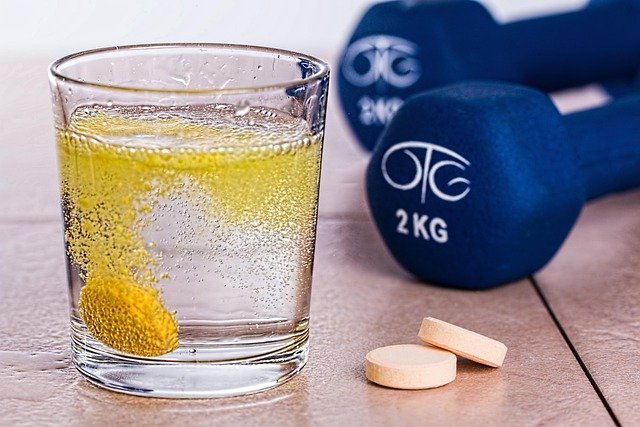Exploring Effective Cholesterol Treatment Options
High cholesterol is a common health concern that affects millions of people worldwide. Left untreated, it can lead to serious cardiovascular issues. Fortunately, there are numerous effective treatment options available to help manage and reduce cholesterol levels. This article explores various cholesterol treatment approaches, from lifestyle modifications to medical interventions, empowering you to take charge of your heart health and say goodbye to high cholesterol.

What is cholesterol and why is it important to manage?
Cholesterol is a waxy substance found in your blood that plays a crucial role in building cell membranes and producing hormones. However, when cholesterol levels become too high, it can accumulate in your arteries, increasing the risk of heart disease and stroke. There are two main types of cholesterol: low-density lipoprotein (LDL), often called “bad” cholesterol, and high-density lipoprotein (HDL), known as “good” cholesterol. Managing these levels is essential for maintaining overall cardiovascular health.
How can lifestyle changes help lower cholesterol levels?
One of the most effective ways to manage cholesterol is through lifestyle modifications. Adopting a heart-healthy diet rich in fruits, vegetables, whole grains, and lean proteins can significantly impact your cholesterol levels. Reducing saturated and trans fats while increasing fiber intake can help lower LDL cholesterol. Regular exercise, such as brisk walking, jogging, or cycling for at least 30 minutes a day, can boost HDL cholesterol levels. Additionally, maintaining a healthy weight and quitting smoking can contribute to better cholesterol management.
What dietary supplements can aid in cholesterol reduction?
Several dietary supplements have shown promise in helping to lower cholesterol levels. Omega-3 fatty acids, found in fish oil supplements, can help reduce triglycerides and increase HDL cholesterol. Plant sterols and stanols, available in fortified foods or supplement form, can block cholesterol absorption in the intestines. Soluble fiber supplements, like psyllium, can also help lower LDL cholesterol. However, it’s important to consult with a healthcare professional before starting any supplement regimen, as they may interact with other medications or have side effects.
When are cholesterol-lowering medications necessary?
In some cases, lifestyle changes alone may not be sufficient to manage high cholesterol levels. Your doctor may recommend cholesterol-lowering medications if you have a high risk of heart disease or if lifestyle modifications haven’t yielded desired results. Statins are the most commonly prescribed cholesterol-lowering drugs, working by blocking a substance your body needs to make cholesterol. Other medication options include bile acid sequestrants, cholesterol absorption inhibitors, and PCSK9 inhibitors.
What are the latest advancements in cholesterol treatment?
Recent advancements in cholesterol treatment have expanded the options available to patients. PCSK9 inhibitors, a newer class of injectable drugs, have shown remarkable efficacy in lowering LDL cholesterol levels, especially for those with familial hypercholesterolemia or those who don’t respond well to statins. Gene therapy and RNA interference technologies are also being explored as potential long-term solutions for managing cholesterol. These cutting-edge treatments offer hope for individuals with difficult-to-treat high cholesterol.
How do different cholesterol-lowering medications compare?
When it comes to choosing a cholesterol-lowering medication, it’s essential to consider the efficacy, side effects, and cost of various options. Here’s a comparison of some common cholesterol treatments:
| Medication Type | Efficacy (LDL reduction) | Common Side Effects | Average Monthly Cost |
|---|---|---|---|
| Statins | 20-60% | Muscle pain, liver damage | $10-$200 |
| Bile Acid Sequestrants | 15-30% | Gastrointestinal issues | $100-$350 |
| Cholesterol Absorption Inhibitors | 15-20% | Stomach pain, fatigue | $250-$350 |
| PCSK9 Inhibitors | 50-70% | Injection site reactions | $450-$600 |
Prices, rates, or cost estimates mentioned in this article are based on the latest available information but may change over time. Independent research is advised before making financial decisions.
Choosing the right cholesterol treatment depends on various factors, including your overall health, cholesterol levels, and risk factors for heart disease. Your healthcare provider will work with you to determine the most appropriate treatment plan based on your individual needs and circumstances.
In conclusion, managing high cholesterol is crucial for maintaining heart health and reducing the risk of cardiovascular diseases. From lifestyle changes and dietary supplements to medications and innovative treatments, there are numerous effective options available to help you take control of your cholesterol levels. By working closely with your healthcare provider and implementing a comprehensive treatment approach, you can successfully manage your cholesterol and improve your overall cardiovascular health.
This article is for informational purposes only and should not be considered medical advice. Please consult a qualified healthcare professional for personalized guidance and treatment.




